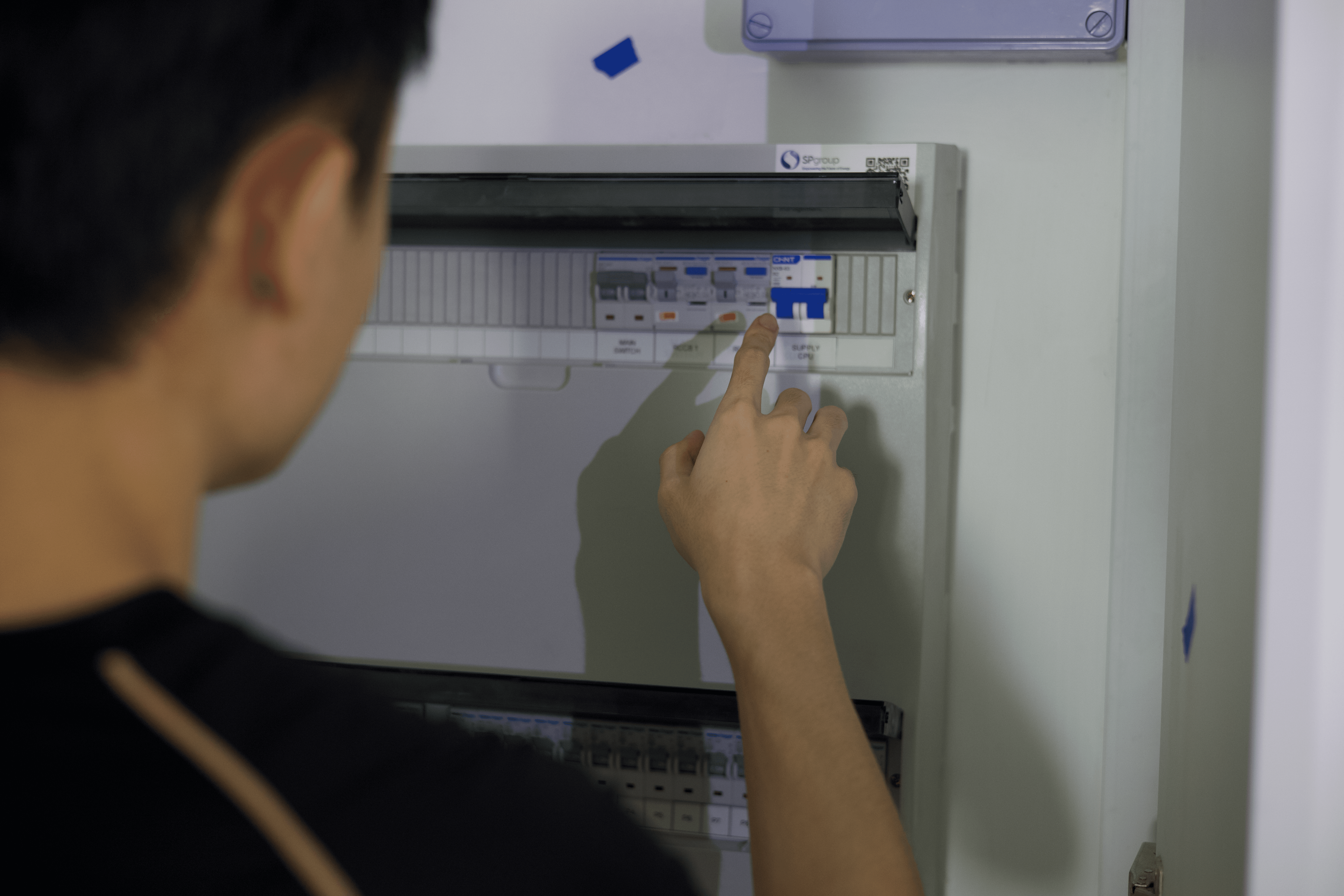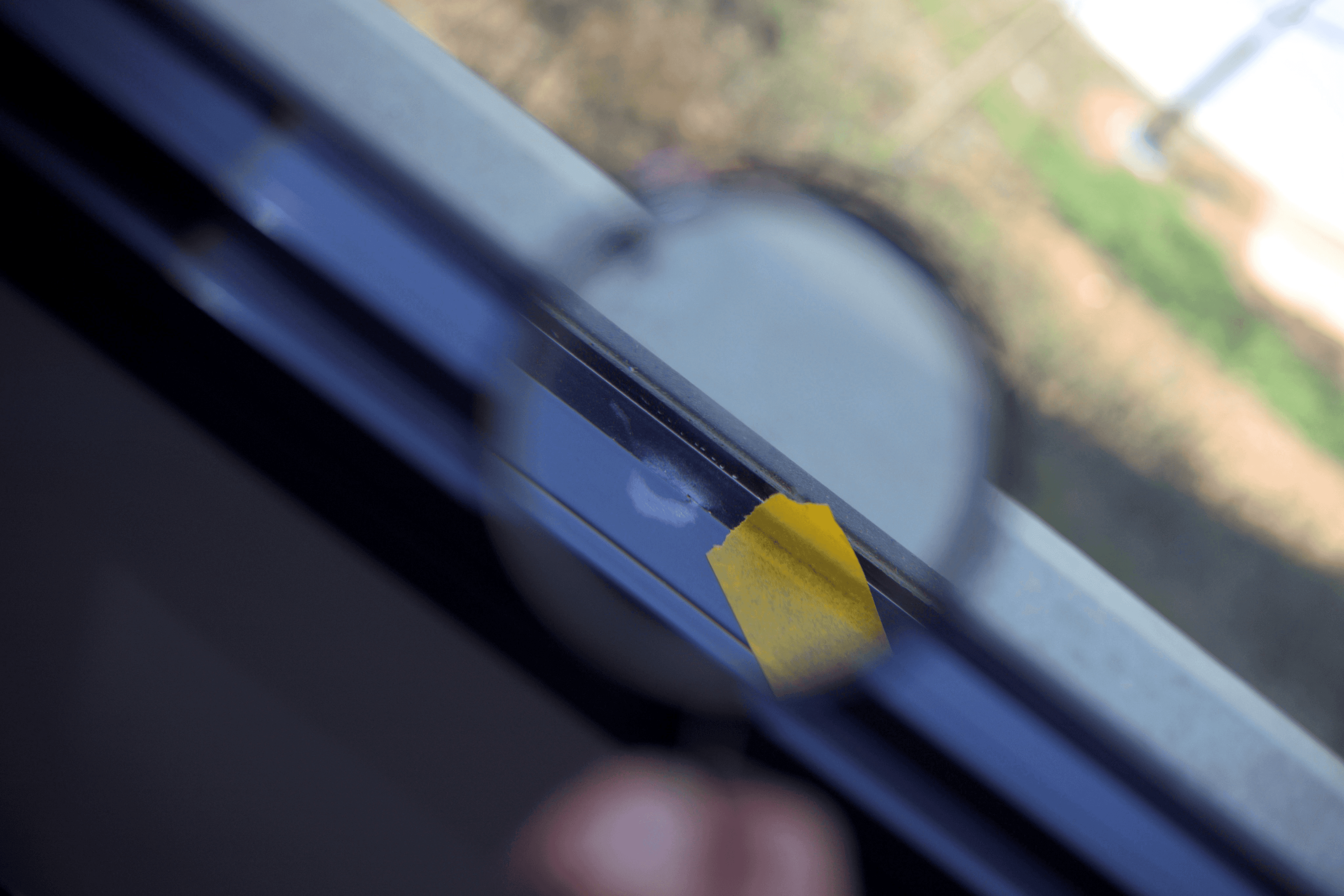Top 10 Defects We Find in BTO Flats
Jul 29, 2025
Even with HDB’s quality standards, new BTO flats often come with a list of imperfections for owners to note. Don’t be alarmed – most are fixable and expected as part of the process. The key is to know what to look out for during your initial inspection (right after key collection and before renovation). Many of these defects apply to new condominiums as well, so condo owners should take note too. Prepare a checklist (masking tape, notepad, camera in hand) and be ready to point these out.
Stains at the base of a wall under a window in a new flat’s service yard can indicate water seepage through the walls – a defect that should be reported as soon as possible. Such waterproofing issues may not be immediately obvious on key collection day, so do inspect during or after a heavy rain to catch any leaks
Based on common issues reported by new homeowners, here are the top 10 defects to look for in your BTO flat:
1. Walls & Ceilings – Cracks, Stains, Uneven Paint
Look out for hairline cracks around corners, beams, or ceilings, as well as any discoloration or stains that could signal water seepage. Check for patchy paint, rough plaster, or glossy spots that show poor workmanship. Walls should be dry, smooth, and evenly painted — not flaky or damp.
2. Floors & Tiles – Hollow or Uneven Surfaces
Walk around to check for uneven flooring or sunken spots, especially in tiled areas. Tap on tiles — hollow sounds may indicate poor adhesion and future popping. Also check for cracked tiles, poor grouting, or water pooling near drains (there should always be a slope).
3. Doors & Gates – Alignment & Functionality
Open and close every door and gate — they should swing smoothly and latch securely. Misaligned hinges or rubbing against the floor are common defects. Ensure locks, latches, and handles are properly fitted, and sliding doors move quietly without resistance.
4. Windows – Sealing, Alignment & Handles
Test every window by opening and closing fully, checking the latch and seal. There shouldn’t be gaps, loose handles, or peeling gaskets. After rain, check for water streaks or seepage — even a small leak can signal poor waterproofing.
5. Plumbing – Leaks, Water Pressure & Drainage
Turn on all taps, showers, and flush toilets to test flow and pressure. Check under sinks, joints, and pipes for hidden leaks using a dry cloth. Pour water into floor traps to ensure proper drainage and no bad smells.
6. Electrical Outlets & Switches – Safety Checks
Bring a small charger or socket tester to try every power outlet and switch. Outlets should work, be flush with the wall, and have no cracks or exposed wires. Test your doorbell and open the distribution board to visually check all breakers.
7. Sanitary Wares – Cracks & Stability
Inspect toilets, sinks, and basins for cracks, chips, or wobbly fittings. Sit on the toilet to check stability, and ensure all silicone seals are neat. Flush and watch for leaks or pooling water around the base — even a slow drip should be reported.
8. Bathroom & Kitchen Fixtures – Racks, Showers & Taps
Tug on racks, mirrors, and towel bars to confirm they’re securely installed. Ensure taps and mixers don’t leak and that water flows consistently. In the kitchen or service yard, inspect heater pipes or dish racks for cracks, rust, or loose mounts.
9. Waterproofing & Drainage – After Rain or Wet Use
Look for leaks during or after heavy rain — walls, windows, and balcony doors should stay dry. Test bathroom drainage with water to ensure it flows to the trap and doesn’t escape under the door. Ceiling damp spots, especially in bathrooms, could point to poor waterproofing from the unit above.
10. Miscellaneous Fittings – Small but Important
Test the laundry rack, bomb shelter door, and rubber door seals. Inspect skirting boards and window gaskets for secure fitting. Even small items like loose knobs or misaligned cabinets should be flagged — nothing in a new flat should arrive defective.
Once you’ve compiled your defects list, submit it through the proper channels (HDB’s defect feedback form or online submission, or the condo developer’s defect form). HDB aims to rectify reported defects within about 14 days and they will arrange a joint inspection and subsequent fixing. For private homes, developers typically fix within a month of reporting. After repairs, do a follow-up inspection with the contractor to verify everything was fixed to your satisfaction – don’t sign off until it’s all in order.















